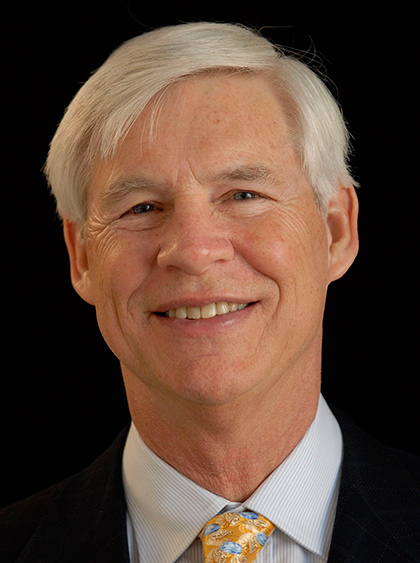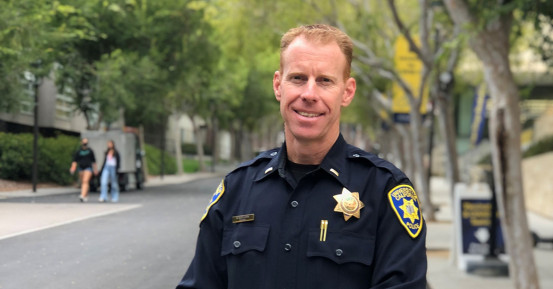By:
Published Date
Robert Engle, Economic Sciences, 2003

Robert Engle
At 69, Robert Fry Engle III is a busy man. Professor emeritus and research professor of economics at UC San Diego, Engle teaches finance at the New York University Stern School of Business, where he is also the founding director of the Volatility Institute. His work on market volatility and systemic risk are in high demand these days: at G-20 meetings, at the Federal Reserve and the U.S. Treasury’s Office of Financial Research. If that weren’t enough, the Nobel Laureate is also an avid and decorated ice dancer. In fact, among those over 50, he’s the reigning U.S. champ.
Widely credited with helping to make the UC San Diego department of economics an econometrics powerhouse, Engle shared the 2003 Nobel Prize in Economic Sciences with the late Clive W. J. Granger, also of UC San Diego. Engle was cited for developing new statistical models that captured the tendency of stock prices and other financial variables to move between periods of high and low volatility.
In 2008, UC San Diego held a festschrift in Engle’s honor and, in the same year, established an endowed faculty chair in his name.
Engle founded the Volatility Institute at NYU in 2009. The institute runs a public website called V-Lab that “provides real time measurement, modeling and forecasting of financial volatility, correlations and risk for a wide spectrum of assets,” according to the institute’s website. “It tracks financial institutions whose failure would have a major impact on the global economy,” Engle explained, “and is a way of helping regulators figure out which banks are taking too much risk.”
Current Faculty Nobel Laureates
Winning the Nobel, Engle said, has made a lot of things easier – applying for grants, for instance – and has made a lot possible. The honor “creates an audience for your ideas around the world,” he said, “but at the same time, it is a little bit of an obligation. Your talk has to be bigger and more important. It also has to be non-technical.”
As a new Nobelist, Engle said, he wasn’t sure how to answer public and media questions about the world’s pressing economic issues but has since adapted and is no longer shy about sharing his expertise and informed opinions. In September, he wrote in the Wall Street Journal about how much it would cost to end the European crisis.
Asked for this story about the economic stakes in Election 2012, he had this to say: “What’s needed is stimulus in the short term and austerity in the long term. I don’t think the Republican program would do that.”
Share This:
You May Also Like
Stay in the Know
Keep up with all the latest from UC San Diego. Subscribe to the newsletter today.



